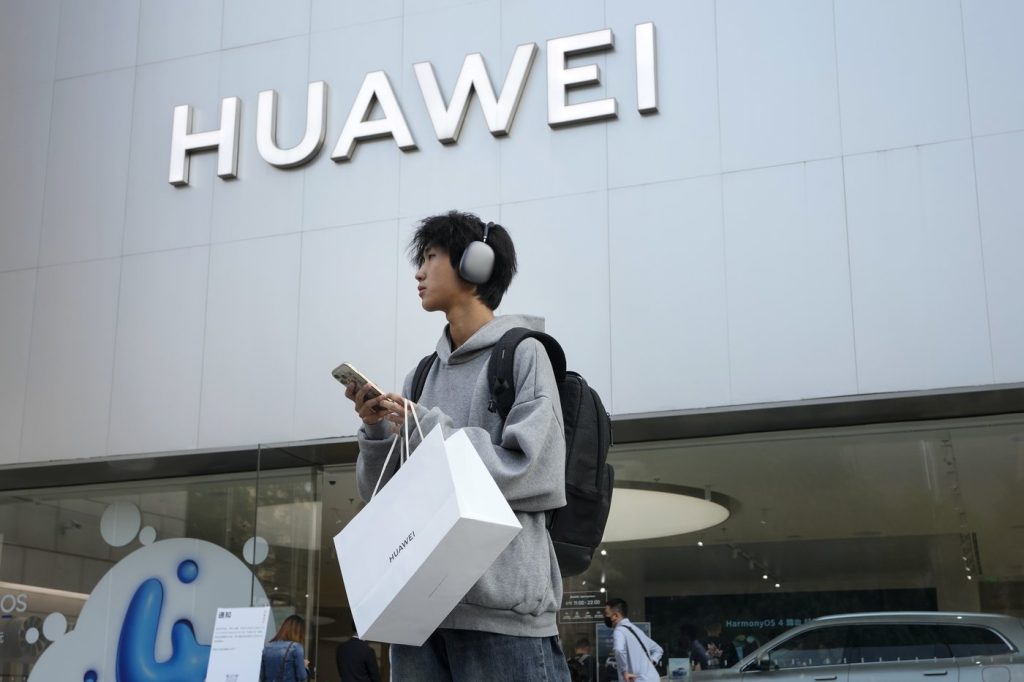TAIPEI, Taiwan (AP) - Taiwan's Commerce Ministry has officially included two major Chinese chip manufacturers, Huawei Technologies and Semiconductor Manufacturing International Corp (SMIC), on its export control list. This decision comes amid escalating trade and technology tensions involving Taiwan, China, and the United States.
The inclusion of these companies in the "strategic high-tech commodities" list signifies that Taiwanese firms will be required to secure export permits before engaging in transactions with them. This list also encompasses other entities, including terrorist organizations such as the Taliban and al-Qaeda. Notably, it includes various organizations from China, Iran, and other regions recognized for their contentious positions towards the U.S. and its allies.
The update to the export control entities list was enacted on Sunday, with both Huawei and SMIC remaining silent regarding their new status as of this reporting. It is important to note that both companies have previously been subjected to sanctions imposed by the U.S. government. They are currently working to produce China's most advanced homegrown artificial intelligence chips, aiming to compete with the leading U.S. company, Nvidia. This effort is particularly crucial as they seek to meet the demands of Chinese technology firms amidst the broader restrictions limiting China's access to cutting-edge semiconductor technologies.
Taiwan is notably the home of the world’s largest chipmaker, Taiwan Semiconductor Manufacturing Co. (TSMC), which serves as a significant supplier to enterprises like Nvidia. In a similar context, it was reported that last November, the U.S. government issued orders to TSMC to cease the supply of specific advanced chips to Chinese clients, part of larger strategic efforts to curtail Chinese access to advanced technological resources.
The geopolitical landscape surrounding this issue is complex, as China considers Taiwan a part of its territory and has made statements indicating it would annex Taiwan by force if deemed necessary. Meanwhile, the U.S. continues to play a pivotal role as Taiwan’s largest unofficial ally and a primary arms supplier, which adds another layer of tension in the relationship among these three entities.
This action by Taiwan's government may further strain the already delicate trade relations in the semiconductor industry, which is crucial not only for national defense and security but also for global technological competitiveness. The ramifications of this inclusion on the export control list will likely be felt across various sectors, influencing how Taiwanese firms approach their international relationships and sales in the coming months.











